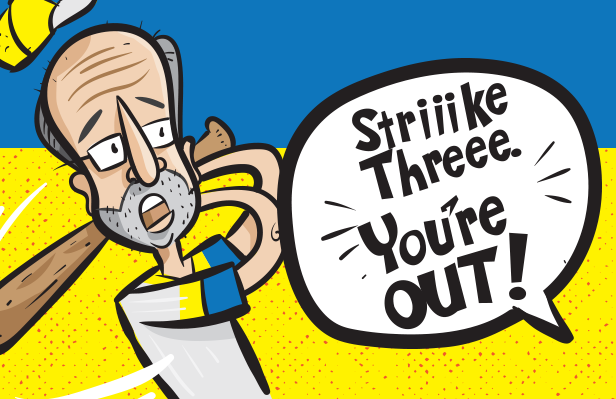Media

Government Strikes Out, Yet Keeps Playing
For state government, it isn’t ‘three strikes and you’re out.’ Or even four strikes. In fact, state officials get to play by their own rules when it comes to economic development. Consequently, taxpayers inevitably lose.
Prime example: the revitalization of the Volkswagen/Sony plant in Westmoreland County. The state has essentially forced taxpayers to become venture capitalists in an attempt to lure manufacturers to the site. Yet, their track record is not impressive.
Volkswagen was given more than $70 million in state aid in the 1970s but only built cars there for 10 years. A $40 million aid package was used to lure Sony to the site in the early 1990s. In 2005, the Rendell Administration gave the company another $1 million grant—to retain jobs in Westmoreland—but the company announced it was closing just two years later.
Not content to stop after those three strikes (over $100 million worth of aid), the PA Department of Community and Economic Development (DCED) gave Aquion Energy nearly $19 million worth of grants and loans to build and retain its manufacturing plant at the old Sony site. This March, Aquion filed for Chapter 11 bankruptcy. Its largest unsecured creditor, at $8.6 million, is listed as DCED—also known as Pennsylvania’s taxpayers.
Fortunately, we’re assured that DCED will pursue full recovery of that money in bankruptcy proceedings. And they’ve learned their lesson now, right? Wrong! According to David Misner, the department’s communications director, “Revenue recovered by DCED from companies that fail to live up to previous commitments will be reinvested to further promote economic growth in the Commonwealth.”
These handouts are par for the course in Pennsylvania, as we’ve lead the nation in corporate welfare since 2007 with not much to show for it. Clearly this government-centric approach isn’t helping Pennsylvanians. In fact, this approach is destroying residents’ job prospects and chasing people out of the state.
There’s also the issue of fairness. Corporate welfare creates an uneven economic playing-field. It rewards companies that work on pleasing politicians rather than those that please consumers. It forces some businesses to subsidize other businesses. And it creates a class of winners and losers.
With state government currently facing a $1.2 billion revenue shortfall, corporate welfare is an unnecessary and counterproductive expense that taxpayers just can’t afford.